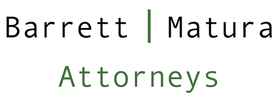|
Hunton v. American Zurich Ins. Co. – Expert’s Testimony May Lead to Implied Waiver of Attorney-Client Privilege
The Arizona District Court recently found an implied waiver of the attorney-client privilege based on the testimony of the insurer’s own bad faith expert. In Hunton v. American Zurich Ins. Co., 2017 WL 3712445 (D. Ariz. 2017), the insured brought a bad faith suit against the carrier for the handling of her worker’s compensation claim. At issue was the failure of the carrier to accept the claim for several months even after it had obtained an IME report confirming the injury was the direct result of work activity. The carrier’s expert ultimately opined there was no bad faith on the part of the carrier. However, during his deposition, the expert testified that he did not know why the adjuster delayed and then ultimately accepted the claim and speculated that it was probably the result of “a series of emails” between her and her counsel. He further stated that he assumed she “still had doubts” after the IME report and suspected it was due to “a discussion she had with counsel the day she accepted it.” Those emails, of course, had been redacted, which led to a motion to compel their production. Although the carrier argued that it was not raising a defense of “subjective” reasonableness and, therefore, the adjuster’s state of mind was not relevant, the Court found that through the testimony of the carrier’s own expert, it had expressly put “the subjective beliefs of the claims adjuster directly at issue.” As a result, the carrier impliedly waived the attorney-client privilege with respect to any communications regarding the ultimate coverage determination and decision to accept the claim. The Court relied on the principle that if the adjuster incorporated the advice or judgment of its own coverage counsel in making its decision, it could not “shield” those communications. Carriers should be cautioned that if they do attempt to rely on any advice of counsel, a court may find an implied waiver of the privilege, even though that carrier does not expressly raise an “advice of counsel” defense. Therefore, the testimony of an adjuster is usually critical in this regard. If that testimony raises any issue with regard to the subjective beliefs of the adjuster or his or her reliance on communications from counsel, a court will likely find such a waiver. This case further confirms that a court may find such a waiver even if the testimony comes from the carrier’s expert instead of the adjuster. As a result, carriers and their counsel should ensure that their experts do not offer such testimony or speculate that certain actions or decisions may have been based on communications or advice from their counsel. Otherwise, they may inadvertently waive the attorney-client privilege with regard to any such communications. Learn more about the Barrett | Matura Insurance Litigation and Coverage Practice Group. Contact Jennifer Bahling or Kevin Barrett for more information. Comments are closed.
|
Archives
November 2020
Categories
|
Arizona | Nevada | California
|
©2018 BARRETT | MATURA
ALL RIGHTS RESERVED. |

 RSS Feed
RSS Feed